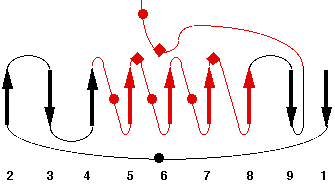6HW1
Name : Room temperature structure of lipase from T. lanuginosa at 2.5 A resolution
Revelation date : 24-Oct-2018
Family : Lipase_3
Gene_locus : humla-1lipa
PDB file : ESTHER: header of PDB entry RCSB: Full entry
Comment
Gavira, J.A., Fernadez-Penas, R., Martinez-Rodrigues, S., Verdugo-Escamillas, C.
Ligand :
References (1)
| Title : A simple and versatile microfluidic device for efficient biomacromolecule crystallization and structural analysis by serial crystallography - de Wijn_2019_IUCrJ_6_454 |
| Author(s) : de Wijn R , Hennig O , Roche J , Engilberge S , Rollet K , Fernandez-Millan P , Brillet K , Betat H , Morl M , Roussel A , Girard E , Mueller-Dieckmann C , Fox GC , Olieric V , Gavira JA , Lorber B , Sauter C |
| Ref : IUCrJ , 6 :454 , 2019 |
| Abstract : de Wijn_2019_IUCrJ_6_454 |
| ESTHER : de Wijn_2019_IUCrJ_6_454 |
| PubMedSearch : de Wijn_2019_IUCrJ_6_454 |
| PubMedID: 31098026 |
| Gene_locus related to this paper: humla-1lipa |
Representative scheme of Prolylcarboxypeptidase structure and an image from PDBsum server

